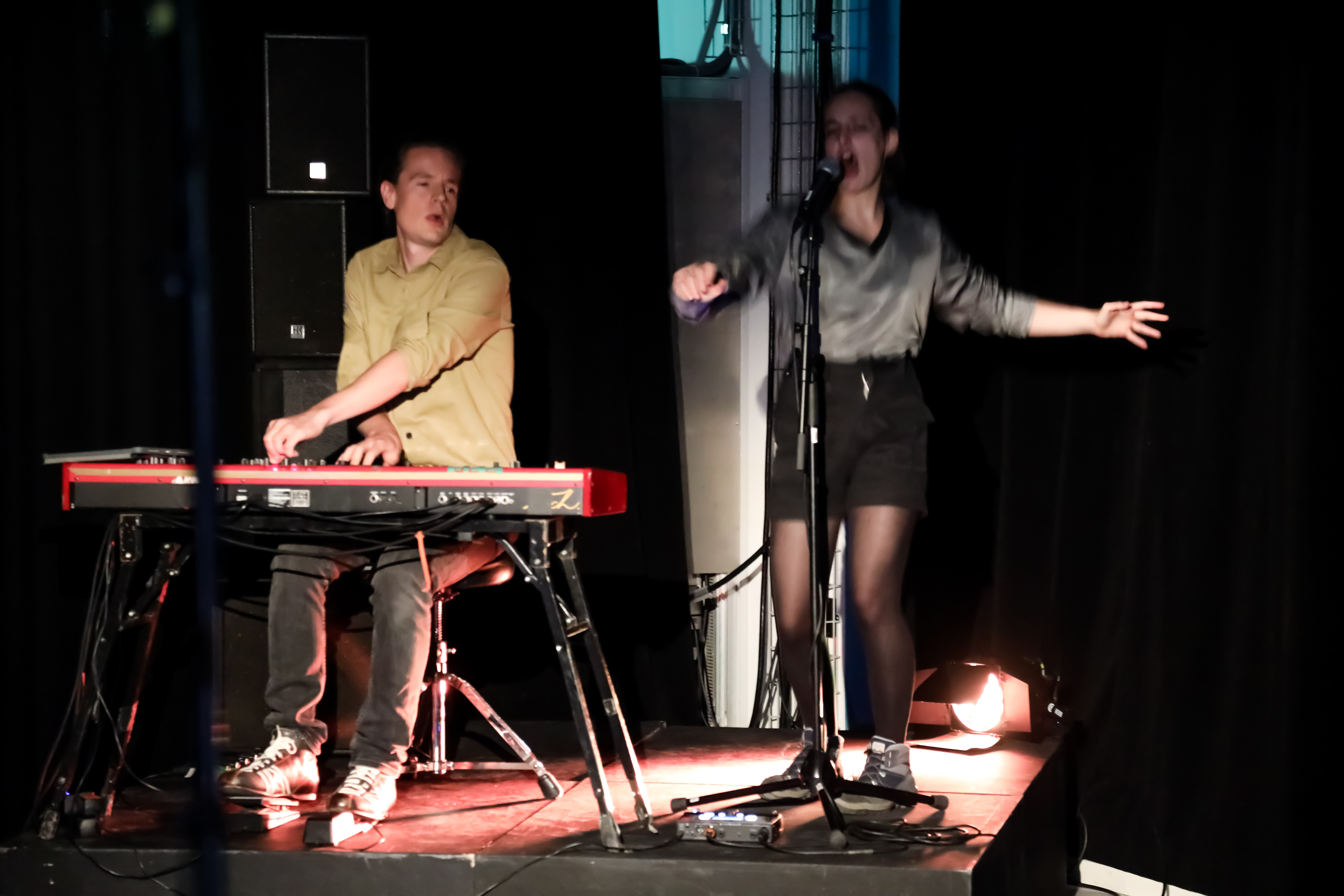Teaching




Student feedback
“Caitlin’s teaching guidance played a pivotal role in shaping my academic journey during my Masters in Interaction Design. Her guidance extended across both theoretical essays and creative practice, where she helped me push my knowledge and creative exploration of feminist theory, queer theory, cyber witchcraft, rituals, gestures, and
performance.” Nella Piatek MA Interaction Design Graduate (2022)
“I experienced Caitlin’s teaching as thoroughly researched, very interactive and supportive. I particularly enjoyed Caitlin’s workshop on deep listening, in which we all managed to get a valid experience in a short amount of time thanks to a professional and skilled guidance. In general, I felt really safe, supported and seen by Caitlin, who in a very short amount of time managed to find all my strengths and encourage me to cultivate them.” Lena Bossaerts Student on the Shared Campus Summer School (2022)
“I’m really glad I participated. Also, I never thought I would be speaking about a dissertation as for so long, I was so nervous to write. You’re an amazing tutor and know so much, I have learned a lot from you. So, thanks again, it has been a short but sweet experience of being in your tutorial group.” Davinia Clarke, CTS3 Dissertation Student, LCC, UAL (2023)
“Caitlin is a very supportive tutor. She delivers varied and interesting content with passion, balancing academic theory, varied artist examples and practical, mindful tasks to deepen thinking; as a result Caitlin is really respected in my cohort. In the sustainable strategies module, this led to changes in my practice after provocations and meaningful discussions, well organized by Caitlin between students and tutors, especially in the field of deep listening and feminism. Caitlin is quick to respond to questions and gives thoughtful, constructive signposting and feedback which has really helped me to develop my thinking and practical making.” Penny Chivers Stanley - MA Fine Art, Falmouth University.
Teaching Statement
My approach to teaching is rooted in theorist, educator, and social critic bell hooks proposal that teaching is a collaborative and liberatory practice. In her book Teaching to Transgress (1994) hooks argues that teaching offers the possibility of emancipation from oppressive social values, norms, and socio-economic structures. In addition to the work of hooks, I build on the ideas of radical educator Paulo Freire’s praxis of critical pedagogy. The wider context of my teaching philosophy is the project of decolonizing university.
We are educating through troubled and troubling times. The Western academy is built on structures of oppression, the legacies of colonialism and imperialism (Bhambra, Nişancıoğlu, & Gebrial, 2020). Decolonization of the university is imperative. Professor Gurnam Singh defines decolonization of the university as an approach that acknowledges that Western education systems have used methods of education, technologies, and curriculum design as tools with which to uphold the maters house; tools used to reproduce and justify socio-economic and cultural systems of colonialism and imperialism (Singh, 2020, p.3).
Building on the established discourse and practice of decolonizing the university, I propose that the aim of decolonizing the university is to identify and critique icons, curriculums, and forms of representation that at worst advocate for, and best ignore racist, classist, euro-centric patriarchal paradigms of epistemology and ontology. In my teaching practice, I work hard to make sure I introduce students to a range of non-White, female, queer, non-Eurocentric intellectuals, artists and practitioners. Further, I offer a critical lens through which to scrutinize, challenge and reimagine colonial and violent methods of research, knowledge and thought, so often reproduced and lauded within Higher Education institutions.
Educator and philosopher Paulo Freire championed what’s known today as critical pedagogy: the belief that teaching should challenge learners to examine power structures and patterns of inequality within the status quo (Frieire, 1968). Freire emphasized how important it is to remember what it is to be human and saw teaching and learning as a social practice with which to name, study and challenge the reproduction of oppressive social values, epistemologies and hierarchies. I draw on Freire’s ideas of critical pedagogy in my own teaching, inviting students to challenge ideas, tools and methods used within the academy. The value of critical pedagogy is that it offers a conceptual framework with which to name, challenge and disrupt the reproduction of oppressive an inequitable forms of social, economic and cultural capital.
My pedagogic approach advocates and celebrates values of generosity, creative risk taking, diversity, critical analysis and the voicing, embodying and individual and shared analysis of first person lived experience. I design and deliver curriculum, seminars, symposia, conferences, workshops, and activities that scaffold and develop engaged and critical pedagogy. I strive to demonstrate a teaching philosophy that believes that first person lived experiences, within and outside the academy matter, and shape and inform our bodies, nervous systems, desire, creative motivation, identity, sense of self and learning journeys.
My teaching portfolio can be found here.